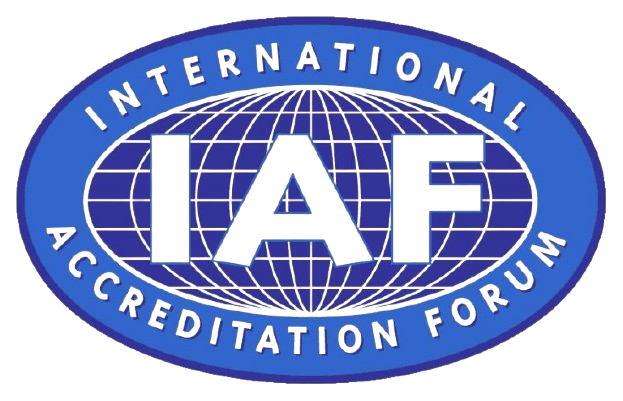

In the realm of medical device manufacturing, ensuring the safety and biocompatibility of products is paramount. ISO 10993 Certification, an international standard for biological evaluation of medical devices, plays a crucial role in assessing the potential risks associated with materials used in medical devices. This certification provides a comprehensive framework for evaluating the biological safety of medical devices, ensuring that they are safe for use in patients. Throughout this white paper, we will explore the significance of ISO 10993 Certification, its benefits, and the key steps organizations must take to achieve it.
“Given below is the more detail about the ISO 10993 – BEMD standard and you might be interested learning more about it. Rest of the part you can avail the certification from ICS to get your organizational dream come true by contact us by clicking below button.”
ISO 10993 Certification encompasses a series of standards that address the biological evaluation of medical devices. These standards provide guidelines for designing and conducting biological tests to assess the safety and biocompatibility of materials used in medical devices. The primary goal of ISO 10993 Certification is to identify any potential biological risks associated with medical devices and ensure that they meet the necessary safety requirements for patient use. This certification not only covers various aspects of biological evaluation but also specifically addresses cytotoxicity, sensitization, as well as irritation, systemic toxicity, and furthermore, genotoxicity. In addition, it encompasses these critical areas while ensuring a comprehensive assessment of biocompatibility. Moreover, by including these key components, the certification effectively evaluates potential biological risks and ultimately helps demonstrate product safety.
Achieving ISO 10993 Certification involves several critical steps. The first step is to conduct a comprehensive risk assessment to identify any potential biological risks associated with the materials used in the medical device. This assessment helps organizations understand the scope of testing required and develop a plan for evaluating the biological safety of their products.
Following the risk assessment, organizations should design and conduct biological tests according to ISO 10993 standards. Accredited laboratories should perform these tests to ensure reliable and accurate results. They must thoroughly document and analyze the test data to identify any potential risks and determine the material safety.
Next, organizations should compile a biological evaluation report that summarizes the results of the tests and provides a comprehensive assessment of the biological safety of the medical device. This report should include detailed information on the materials used, the test methods employed, and the results obtained. It should also include a risk assessment that outlines any potential risks and the measures taken to mitigate them.
The final step is to undergo an external audit by a certified certification body. This audit assesses the organization’s compliance with ISO 10993 standards and verifies the accuracy and completeness of the biological evaluation report. Upon successful completion of the audit, the organization is awarded ISO 10993 Certification, demonstrating its commitment to ensuring the biological safety of its medical devices.
Indeed, ISO 10993 Certification is not a one-time achievement but rather an ongoing commitment to continuous improvement. As a result, organizations must establish robust mechanisms to not only monitor but also regularly review the biological safety of their medical devices. For instance, this includes not just conducting periodic biological tests but also updating the biological evaluation report and, above all, implementing timely corrective actions to address any identified risks. Consequently, by taking these steps, they can both ensure sustained compliance and enhance patient safety and product reliability at the same time. In the long run, this proactive approach not only strengthens their quality management system but also further reinforces their dedication to regulatory excellence. Thus, by maintaining this cycle of improvement, organizations can consistently meet evolving standards while demonstrating leadership in medical device safety.
Moreover, organizations must stay updated with changes in regulatory requirements and advancements in biological testing methods. Not only does ISO 10993 Certification require organizations to adapt their practices to comply with evolving regulations, but it also ensures the continued safety of their products. Therefore, by doing so, organizations can not only maintain their certification but also demonstrate their ongoing commitment to patient safety. Furthermore, this proactive approach helps them stay ahead in a competitive market while upholding the highest standards of quality.
ISO 10993 Certification plays a vital role in ensuring the biological safety of medical devices. By achieving this certification, organizations can enhance patient safety, demonstrate their commitment to high standards of quality, and facilitate market access for their products. ISO 10993 Certification aligns biological evaluation practices with regulatory requirements, supporting organizations in achieving their goals.
Implementing ISO 10993 requires a systematic approach, first starting with a comprehensive risk assessment and finally culminating in an external audit. However, the benefits of certification far outweigh the effort involved. As a result, as organizations continue to navigate the complexities of medical device manufacturing, ISO 10993 Certification stands as a beacon of excellence, ultimately guiding them toward improved performance and sustained success.

For Quick Contact Leave Your Message We will Contact You Shortly Or Call Us At Given Numbers or Email Addresses. We Love to Deliver Our Efficient Services.
Copyright All Rights Reserved © 2025